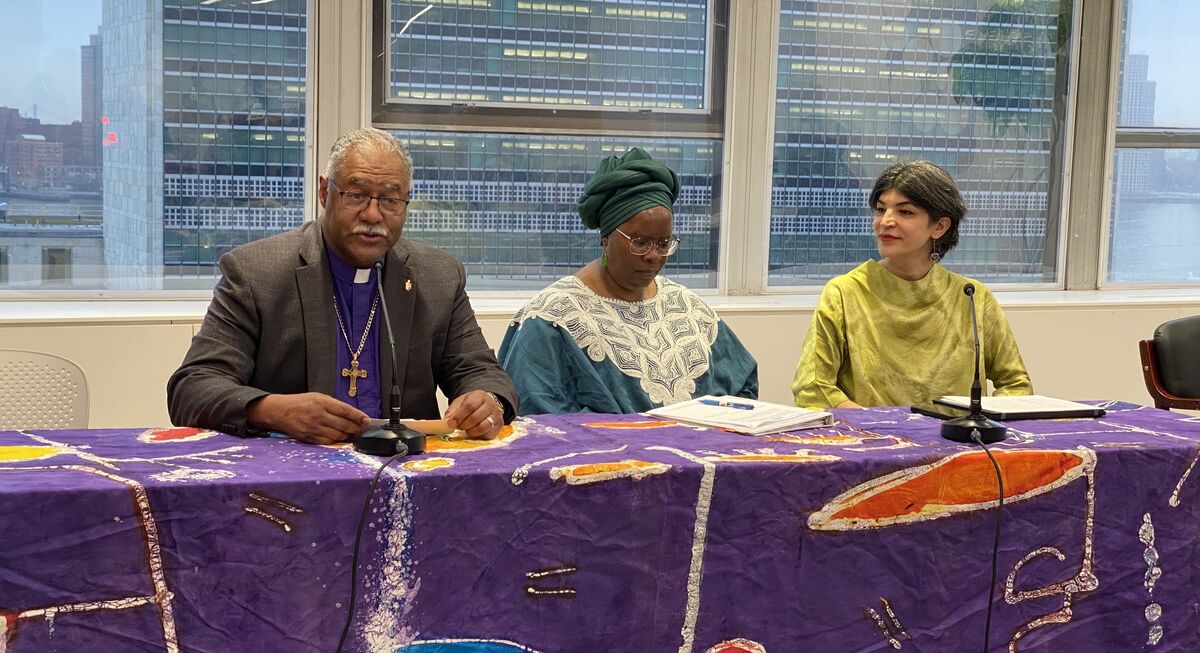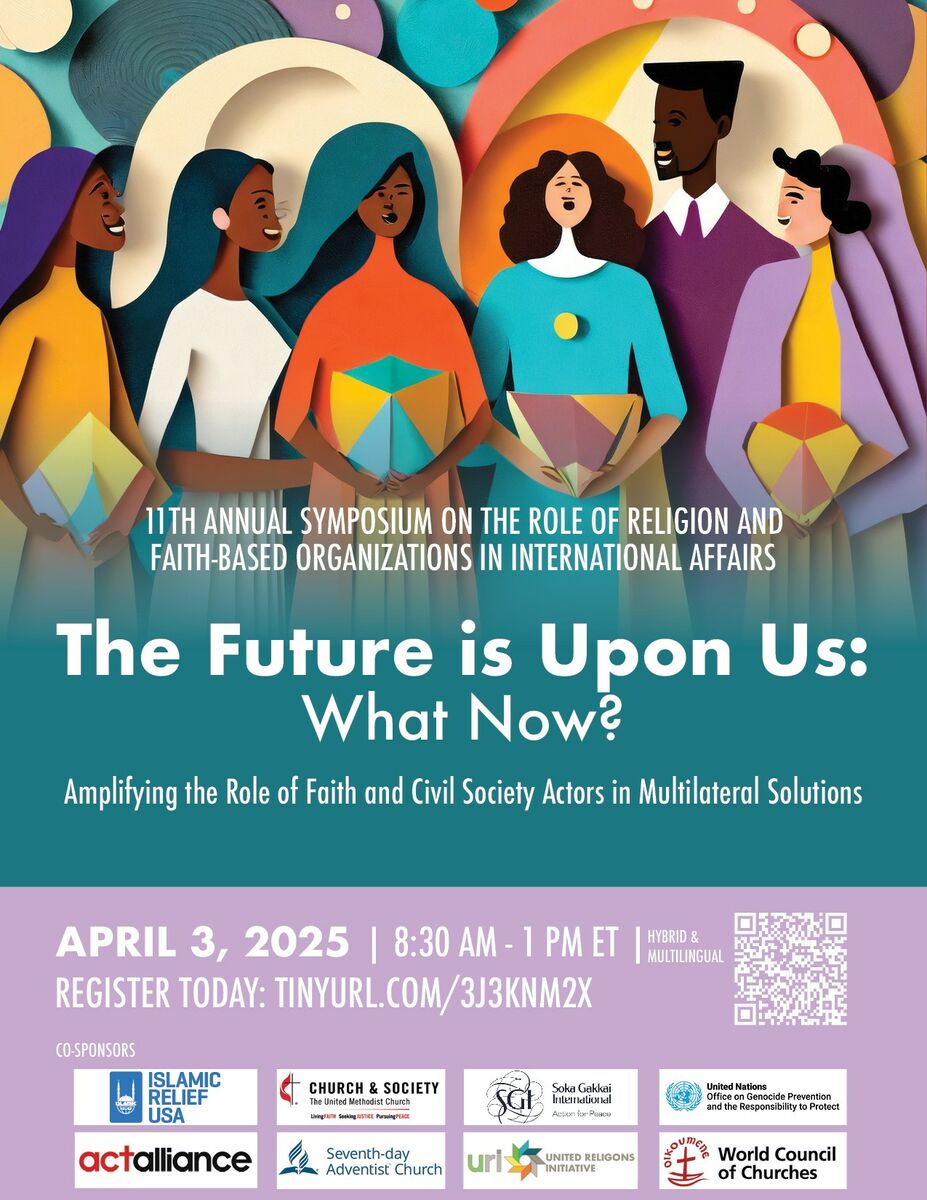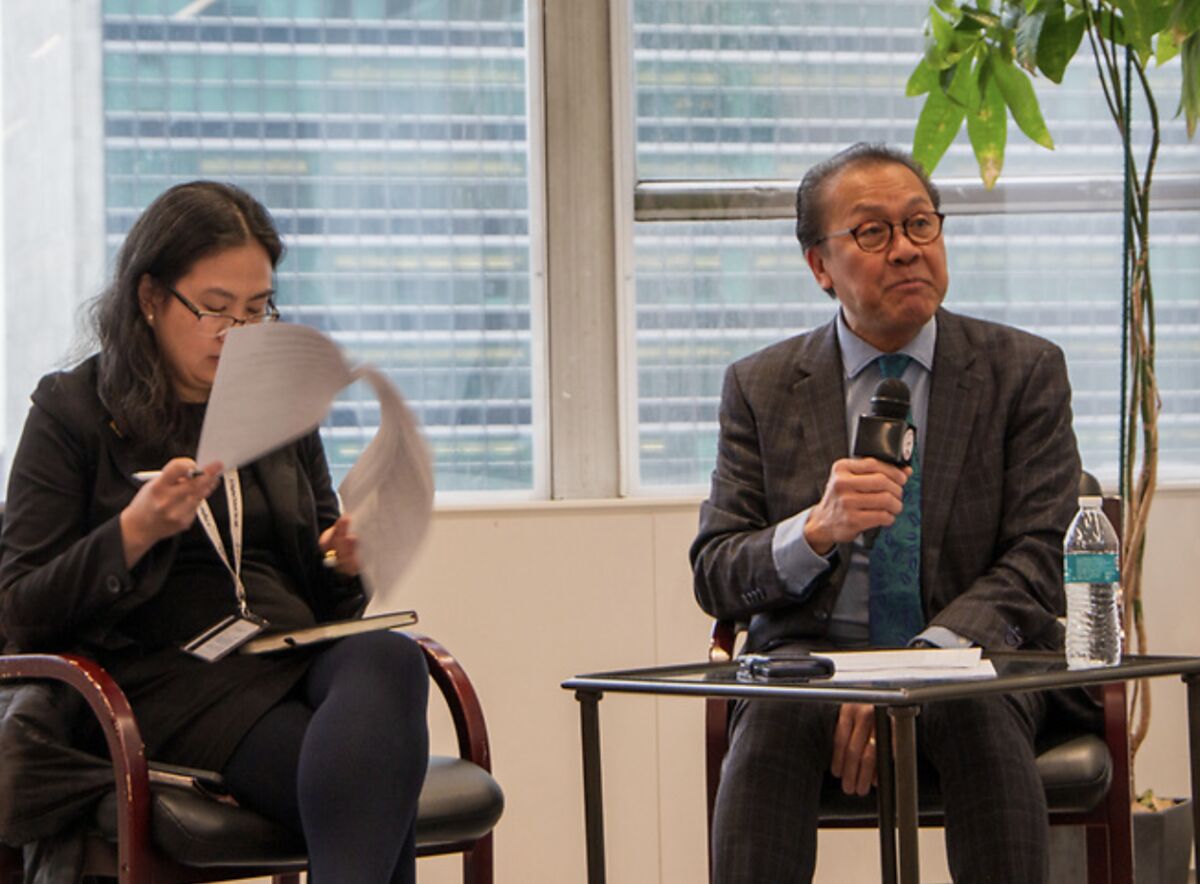At Symposium, Faith Actors and Global Institutions “Find the Sun” Together
As nearly 500 people gathered in-person and online for the 11th Annual Symposium on the Role of Religion and Faith-Based Organizations in International Affairs, they spoke of “finding the sun”—a symbol of a future that is both possible and profoundly just—together.


With the theme “The Future is Upon Us: What Now? Amplifying the Role of Faith and Civil Society Actors in Multilateral Solutions,” this year’s symposium focused on aspects of the UN Pact for the Future, adopted in September 2024.
This 11th annual symposium explored the critical role of faith-based organizations and civil society in shaping global solutions at a time of increasing challenges to multilateralism. The event was live streamed from New York City, with the view of the UN headquarters in full view from the window.
Bishop Julius Trimble, general secretary of the General Board of Church and Society of the United Methodist Church in his opening remarks said that, while he is often defined and identified with a particular faith family, he sees his primary identity as a child of God, and part of one human family.
“This is our season of sustained resistance to all that is divisive and dehumanizing,” he said. “This is our season of sacred resilience and unbounded hope.”
Peter Prove, director of the World Council of Churches Commission of the Churches on International Affairs, and Dr Nkeiruka (Kiki) Didigu, senior interagency specialist and lead for the Decade of Action, moderated the dialogue,

“Behind us is the UN secretariat, and perhaps appropriately today it’s under gray clouds,” said Prove, who acknowledged that the UN multilateral system certainly has its challenges.
“But, the sun is always behind the clouds,“ said Prove. "It’s our job together to find the sun and we aim to inspire collective action for a just and better future for all of us.”
During the opening session, Dr Nkeiruka (Kiki) Didigu, senior interagency specialist and lead for the Decade of Action, of the United Nations Population Fund, reflected on the theme.
“It’s no secret that multilateralism is under pressure,” she said. “We also know that this space for civil society in general has been shrinking. This is something that we’re working collaboratively to change.“
Trimble added that the divine imprint of human dignity and sacred work cannot be taken away by the stroke of a pen. “The moral arc of the universe may bend toward justice but only together we can help bend it with unbounded hope, sustained resistance, and sacred resilience,” he said.
Nyaradzayi Gumbonzvanda, deputy executive director for UN Women, said she has recently been in many discussions during which the role of faith groups in societal issues has been highlighted. “When the UN was founded in 1945-46, it was in the ashes of war,” she said, also referring to a a sense of “righteous anger” rising in many societies right now.
“We need the strong voice of faith,” Gumbonzvanda added.
Nika Saeedi, who leads the United Nations Development Program in mental health and psychosocial support, as well as engagement with faith-based organizations and religious actors, noted that, for many communities, faith-based actors are the first to respond and the last to leave, particularly in initiatives related to peace-building, mental health, sustainable development, and inclusion.
“Civil society space is shrinking,” she agreed. “Funding is an issue that we are all facing. It’s not only the funding part; it’s the way that it has been handled. Let us work for a future that is not only possible but profoundly just.”
As the symposium drew to a close, attention turned to the issue of regulating artificial intelligence.

The Rev. Dr. Liberato Bautista, assistant general secretary for United Nations and international affairs at the General Board of Church and Society of the United Methodist Church, questioned whether digital governance can meaningfully promote equity when AI and other technologies are largely market-driven.
"A part of our reality today is marked by a rapidly emerging information age where knowledge is ever more digitalized, and information is digitized. As we perceive it, the future world order and geopolitics will be shaped by this technology and will undoubtedly impact democratic norms of participation and decision-making,” he said.
This year’s edition of the symposium included sessions titled “Faith Actors and Multilateralism: Advocating for Inclusive Global Governance”, “Revitalizing commitments to the Beijing Platform for Action”, “Building Peace in the Midst of Conflict”, and “The AI Genie is Out of the Bottle. Can Digital Governance Catch Up?”.
The symposium began in 2015 and over the years has covered a variety of themes, always with the aim of fostering dialogue between faith actors and global institutions.